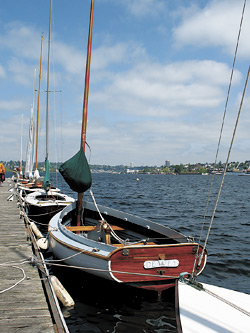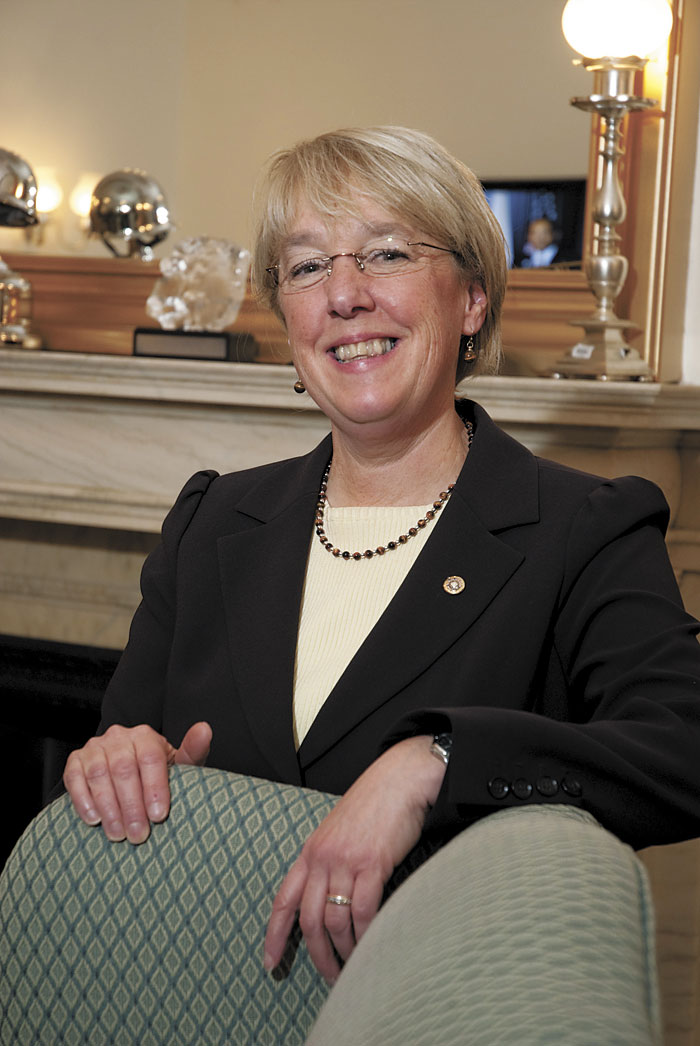You don’t have to be outfitted in topsiders and white slacks and have a healthy slush fund to enjoy one of the simple pleasures of summer—at least not at Sail Sand Point or The Center for Wooden Boats, where they aim to bring the sport of the privileged to the people.
The idea behind Sail Sand Point, tucked at the north end of Magnuson Park, is simply to spread the singular joy that comes from whipping across the water motor-free, says affable executive director Morgan Collins. “Our whole purpose for being is to let anybody who wants to do this do this. If someone can’t afford it, they can volunteer their time. Nobody gets turned away for money.”
A set of six beginner sailing classes is $250. For the experienced but rusty, brush-up sessions are $30. And for those who are already skilled skippers, it’s just $175 for unlimited sailing April to November—and pass holders can bring guests free of charge. Annual passes for college/graduate students are $85; $25 for kids 15-17; and just $1 for kids under 15 (dinghy-sized boats only). There’s also a variety of camps for kids ages 10-18.
Though it’s a deal, the skiffs aren’t shabby. This summer Sail Sand Point has a new fleet of 14-foot Flying Juniors, two-person boats that are sleek and fast, with a 105-square-foot sail. The club also has a couple of E Scow racing boats, a fleet of 13-foot Lasers, and some Hobie 16 and Hobie Wave catamarans—nearly 70 boats total. Even on those sunny Saturdays, Collins says people can usually find a boat to sail. When they’re all checked out, there’s a 90-minute time limit.
If sailing a piece of history is more your speed, try The Center for Wooden Boats at the southern tip of Lake Union. The center doesn’t have standard instructional boats like the Lasers and Flying Juniors, but it offers, according to founding director Dick Wagner, “the opportunity to sail boats you just don’t see anywhere else.” The Center counts among its 200-vessel collection a catboat traditionally used for lobster fishing off Cape Cod, a classic sloop, built around 1930, and a 19-foot Cape Ann dory called Q’Ona.
While the historic sailboats and the urban setting may differ dramatically from Sail Sand Point, The Center for Wooden Boats also has a mission to increase sailing opportunities for common folk. “We really want to be a community center that just happens to have a lot of water underneath and a lot of boats people can use,” says Wagner.
And though the Center’s more expensive than Sail Sand Point, it’s still going to be easier on the pocketbook than that yacht club membership. A set of summer classes for Center members is $325. (Membership is $35/year.) New for 2008 are livery passes, allowing members unlimited access to rent boats for $350 for the summer, $475 year-round. Nonmembers can purchase livery passes too, but the extra expense makes it worth it to pay the nominal membership fee.
The Center also offers scholarships and opportunities to volunteer. Three hours of donated time equals one hour of free rental on the water. “We just keep finding more and more ways to keep getting people involved with boats,” says Wagner, who started the Center out of his home more than 30 years ago. “Especially the youth. They are so easy to teach. And they learn a skill they can use the rest of their life.”
Sail Sand Point’s Collins adds that sailing is more than just a pastime, it can change people. “I used to think sailing was the answer. If people were sailing, [the world] might stop fighting,” he says. “I still think sailing holds answers to a lot of things.”






